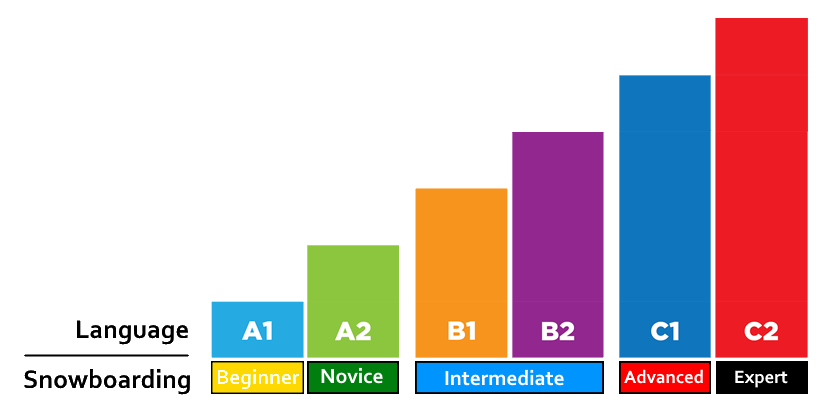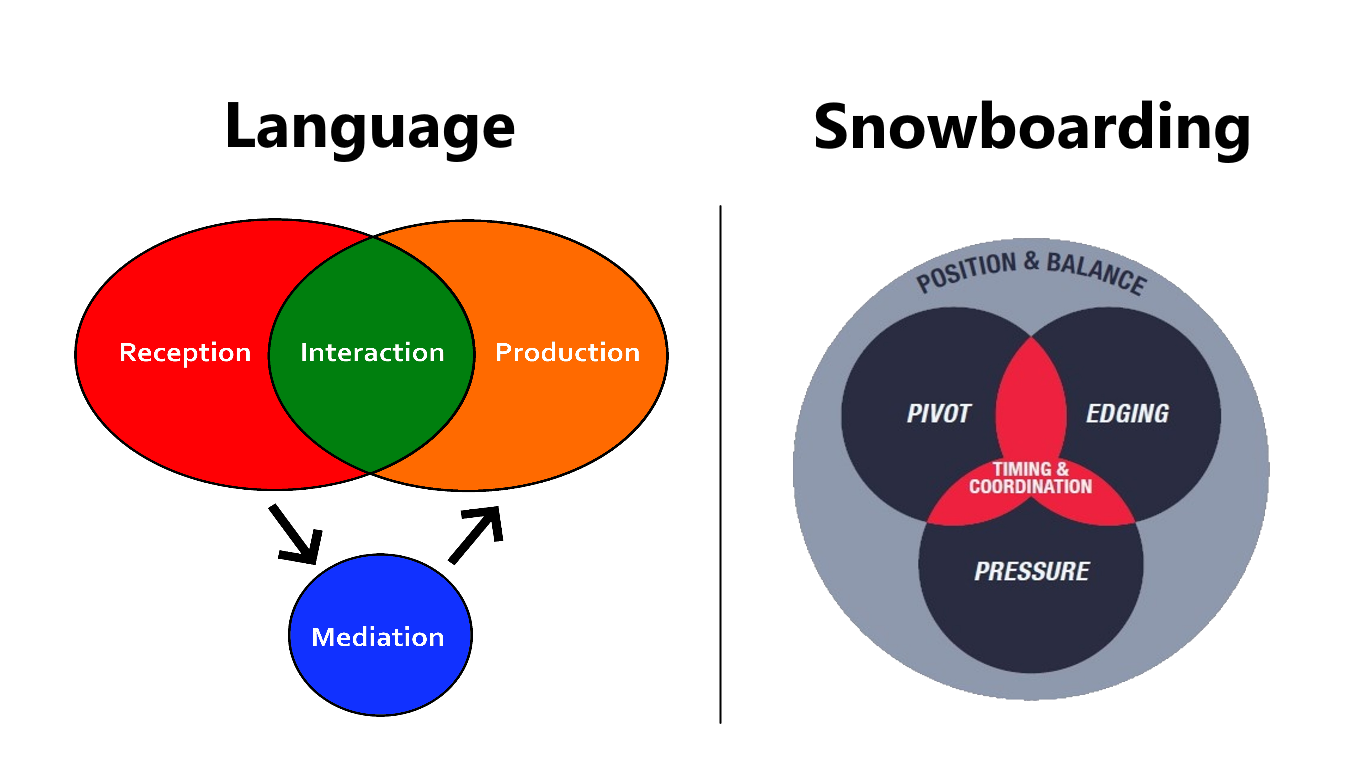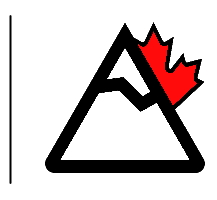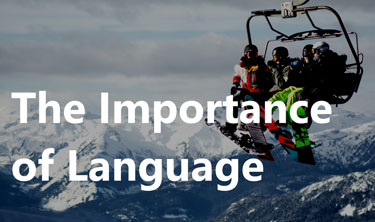The following article is a guest-post from CASI member and evaluator, Graham Sinclair, Head Coach at snowboardteacher.com, which provides training courses for CASI snowboard instructor certifications.
Speaking a second language is like snowboarding switch.
We know what we want to say in our minds, but it’s really hard to make it actually happen!
In most cases, we feel more comfortable in our natural stance, and in our first language!
The use of language is fundamentally important in snowboard instructing. As instructors we are all engaged in the art of efficient and effective language use to help our students progress.
Now, imagine doing it in a second language!
Why do you care?
Well, maybe you’re an evaluator who has had second language speakers in a course. Or maybe you’re the candidate who speaks English or French as a second language!
Understanding yourself, or your candidates, as language learners can help you both navigate the confusion, frustration, and courage it takes to acquire, refine and use new language on a course.
Let’s draw some parallels between learning snowboarding and learning a language.
When learning a new snowboarding skill, riders progress through The Skill Development Model (I.A.C.R.C.V., p.92 in the Reference Guide). This is also true in language learning!
Let’s say you learn a new term like “shred the gnar”. You’re going to have to hear it for the first time (Initiation), learn what it means (Acquisition), use it naturally without hesitation in the correct social context (Consolidation / Refinement) and then make it your own, “Hop on the shred-train to gnar-town!” (Creative Variation).

The equivalent of snowboarding Skill Levels (Beginner, Novice, etc.) are referred to as Language Proficiency Profiles or CEFR Profiles. CEFR is kind of like the ISIA. To give you an idea of the values of the levels, most universities require a B1 proficiency for admission.
Lastly, the language learning equivalent of Riding Skills (Position & Balance, Pivot, etc.) are Reception, Production, Interaction and Mediation. These can even be broken down
into sub-components just like Riding Skills! Neat, eh?

So, as an evaluator listening to your second language speaking candidates delivering their lessons, try thinking about where they are in their linguistic development. Are they showing an A1 proficiency or is it B1? To expect C2 means we’re expecting Creative Variation. Is that a fair expectation?
As evaluators we simply need to think of the Teaching Assessment Criteria found in the course guides and communicated to the candidates.
Was the technical content explained clearly? Was there positive, safe and goal-oriented leadership? Was there relevant and clear feedback?
We can deliver a better experience for second-language candidates on course is by:
- Giving them scenarios in advance so that they can rehearse and encourage them to write out their lessons at home for the next day. Spontaneous and reactive language use is an A2+ / B1 Interaction proficiency.
- We should use questions! In language teaching we call them CCQs (Concept Checking Questions). Telling Doesn’t Ensure Learning is especially true of second-language speakers.
- Lastly, we can be aware of our own language. Remember, they’re not only “speaking switch”, they’re “listening switch” as well. Awareness of the complexity of our sentences, the speed and clarity with which we deliver them, and repetition of key points can translate into success.
If you’re the candidate speaking your first language or not, preparing for success starts before Day 1 of the course. So, what can you do to prepare for success? 
- Practice – Think about the scenarios you’ll teach on your CASI course (Kids, Adults, Athletic, Non-Athletic, etc.) Write your lessons down on paper, read them out loud and time yourself.
- Coaching – Check your lessons with a professional coach and get feedback. Snowboardteacher.com offers online coaching with CASI evaluators and self-study programs. Candidates who take training before coming to a course do better. It’s a fact.
If you have any questions about language and snowboarding or are ready to get prepared for your next CASI course, send me an email at info@snowboardteacher.com. My team and I are ready to help you succeed!
And remember, being stoked on snowboarding transcends all languages!
|
Graham Sinclair Head Coach | snowboardteacher.com |
 |
References:
CEFR – https://rm.coe.int/common-european-framework-of-reference-for-languages-learning-teaching/16809ea0d4
Eaquals – https://www.eaquals.org/our-expertise/cefr/
